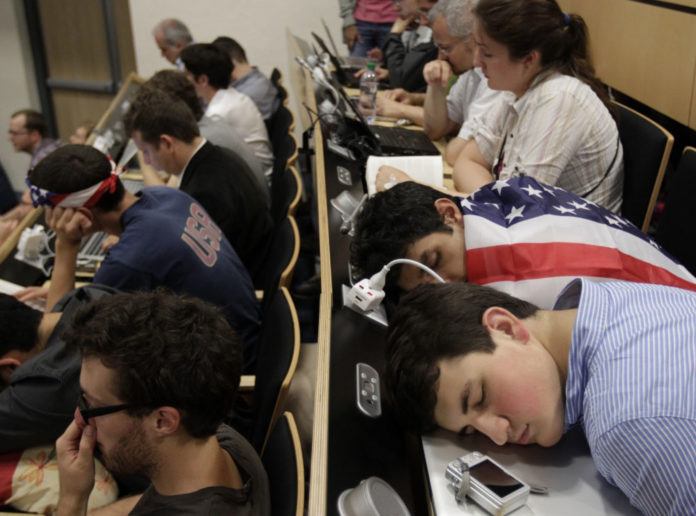Most students have always hated 9 AM morning lectures and even often sleep through them. Conventional educational and working system have starting time of 9 am. Education and work generally start at fixed times. But, such kind of lectures are not just boring, they’re ineffective. A previous study also found that the undergraduate students in classes with traditional stand-and-deliver lectures are 1.5 times more likely to fail.
To sort this issue, scientists at the Open University suggests that traditional 9 am morning lectures should be scrapped. The students should ask to start their day later.
In collaboration with scientists from the University of Nevada, scientists analyze that the early morning lectures interfere with young adults’ body clocks. Such biological changes beginning in puberty shift natural wake and sleep times by up to three hours later in the day.
They involved 200 students and analyzed their study patterns and found good academic performance during 11 AM to 9 PM.
Paul Kelley from the Open University said, “Students do better if they can target their study time to align with their personal rhythm and at the time of day when they know they are most effective.”
Traditional education and work systems that start at fixed times mean adults need to struggle to learn at a time which feels unnatural to them. They mostly start in the early morning and no adjustment for different chronotypes among those who study and work. Having to get up early for lecture might be linked to the rise in students’ mental health problems.
Scientists said, “However in adolescence and early adulthood optimal wake and sleep times are shifted two to three hours later in the day. Yet this group is still required to conform to education start times more appropriate to young children and older adults.”
Study author said, “The temporal misalignment between the sleep timing shift and educational institutions’ usual hours causes significant sleep loss. Sleep loss, in turn, impairs academic performance and also elevates risks of obesity, depression, and drug abuse. Other genetic factors do also matter for this. For example, age and gender can also play a part in determining how easily a person can learn early in the morning.”
